Photo by Brooke Lark on Unsplash
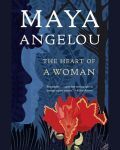
Angelou, Maya. The Heart of a Woman. Random House 2009.
Maya Angelou has fascinated, moved, and inspired countless readers with the first three volumes of her autobiography, one of the most remarkable personal narratives of our age. Now, in her fourth volume, The Heart of a Woman, her turbulent life breaks wide open with joy as the singer-dancer enters the razzle-dazzle of fabulous New York City. There, at the Harlem Writers Guild, her love for writing blazes anew.
Her compassion and commitment lead her to respond to the fiery times by becoming the northern coordinator of Martin Luther King's history-making quest. A tempestuous, earthy woman, she promises her heart to one man only to have it stolen, virtually on her weding day, by a passionate African freedom fighter.
Filled with unforgettable vignettes of famous characters, from Billie Holiday to Malcolm X, The Heart of a Woman sings with Maya Angelou's eloquent prose -- her fondest dreams, deepest disappointments, and her dramatically tender relationship with her rebellious teenage son. Vulnerable, humorous, tough, Maya speaks with an intimate awareness of the heart within all of us.
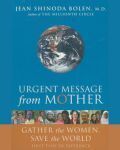
Bolen, Jean Shinoda. Urgent Message from Mother, Gather the Women and Save the World. Conari Press, April 2008.
In this remarkable collection, the prayers of more than two hundred women from thirteen different religions and many diverse cultures have been gathered together for the first time. Sun Bu-er, Sappho, Julian of Norwich, Christina Rossetti, Emily Dickinson, Annie Dillard, Marcia Falk, Marion Woodman—these are just some of the women whose prayers are showcased here.
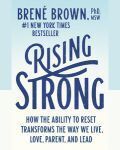
Brown, Brené. Rising Strong. Spiegel & Grau 2015.
Social scientist Brené Brown has ignited a global conversation on courage, vulnerability, shame, and worthiness. Her pioneering work uncovered a profound truth: Vulnerability—the willingness to show up and be seen with no guarantee of outcome—is the only path to more love, belonging, creativity, and joy. But living a brave life is not always easy: We are, inevitably, going to stumble and fall.
It is the rise from falling that Brown takes as her subject in Rising Strong. As a grounded theory researcher, Brown has listened as a range of people—from leaders in Fortune 500 companies and the military to artists, couples in long-term relationships, teachers, and parents—shared their stories of being brave, falling, and getting back up. She asked herself, What do these people with strong and loving relationships, leaders nurturing creativity, artists pushing innovation, and clergy walking with people through faith and mystery have in common? The answer was clear: They recognize the power of emotion and they’re not afraid to lean in to discomfort.
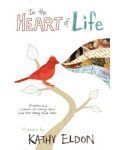
Eldon, Kathy. In The Heart of Life. Harper One 2013.
A Mother Loses Almost Everything Before She Discovers True Joy.
In 1977, Kathy Eldon moved with her husband and two children from England to Kenya, where she found freedom as she had never known it before and was ready to push back from her old, restrictive life. Diving into this tumultuous new world as a journalist and writer, she embraced the energy and creativity of Kenyans, both black and white. But her world collapsed when her twenty-two-year-old son, Dan—an artist and photojournalist on assignment for Reuters—was stoned to death by an angry mob in Somalia, killed by the very people he was trying to help. Kathy's journey through this tragic loss was deeply spiritual as she discovered that, in many ways, Dan was still ever-present in her life.
This gripping international saga includes a passionate love, a dangerous coup in Kenya, and a compelling glimpse into a woman on the brink of self-discovery. After her son's murder, Kathy began to publish his art, which gained popularity worldwide and—together with her daughter, Amy—launched a global foundation celebrating Dan's work as a creative activist. Throughout Kathy's exploration of profound tragedy, we find the secrets to not only surviving, but being truly, gloriously alive.
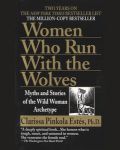
Estés, Clarissa Pinkola. Women Who Run With the Wolves. Ballantine Books; Reprint edition 1996.
Dr. Estés unfolds rich intercultural myths, fairy tales, and stories, many from her own family, in order to help women reconnect with the fierce, healthy, visionary attributes of this instinctual nature. Through the stories and commentaries in this remarkable book, we retrieve, examine, love, and understand the Wild Woman and hold her against our deep psyches as one who is both magic and medicine. Dr. Estés has created a new lexicon for describing the female psyche. Fertile and life-giving, it is a psychology of women in the truest sense, a knowing of the soul.
This volume reminds us that we are nature for all our sophistication, that we are still wild, and the recovery of that vitality will itself set us right in the world.
~ Thomas Moore Author of Care of the Soul
I am grateful to WOMEN WHO RUN WITH THE WOLVES and to Dr. Clarissa Pinkola Estés. The work shows the reader how glorious it is to be daring, to be caring, and to be women. Everyone who can read should read this book.
~ Maya Angelou
An inspiring book, the 'vitamins for the soul' [for] women who are cut off from their intuitive nature.
~ San Francisco Chronicle
Stands out from the pack . . . A joy and sparkle in [the] prose . . . This book will become a bible for women interested in doing deep work. . . . It is a road map of all the pitfalls, those familiar and those horrifically unexpected, that a woman encounters on the way back to her instinctual self. Wolves . . . is a gift.
~ Los Angeles Times
A mesmerizing voice . . . Dramatic storytelling she learned at the knees of her [immigrant] aunts.
~ Newsweek
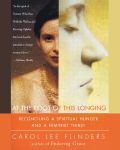
Flinders, Carol Lee. At The Root of This Longing. HarperSanFrancisco 1998-03 (1998).
In At the Root of This Longing, Flinders identifies the four key points at which the paths of spirituality and feminism seem to collide—vowing silence vs. finding voice, relinquishing ego vs. establishing 'self', resisting desire vs. reclaiming the body, and enclosure vs. freedom—and sets out to discover not only the sources of these conflicts, but how they can be reconciled. With a sense of urgency brought on by events in her own life, Flinders deals with the alienation that women have experienced not only from themselves and each other, but from the sacred. She finds inspiration in the story of fourteenth-century mystic Julian of Norwich and her direct experience of God, in India's legendary Draupadi, who would not allow a brutal physical assault to damage her sense of personal power, as well as in Flinders's own experiences as a meditation teacher and practitioner. Flinders reveals that spirituality and feminism are not mutually exclusive at all but very much require one another.
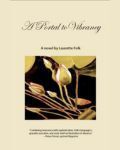
Folk, Laurette. A Portal to Vibrancy. Big Table Publishing Company (June 16, 2014).
A Portal to Vibrancy is the story of Jackie Fellini, a pious Catholic girl, conscientious daughter, and straight-A student who is preoccupied with sinister aberrations – a rib cage hanging from a tree, the demons in the wood grain of the cellar door, her reclusive uncle’s deformed foot. Infatuated with Stephen, the new latch-key kid across the street, Jackie is conflicted about falling in love with a boy who is an atheist, who calls his parents by their first names and indulges in the sensuality and rhythms of the natural world. Stephen Sedgwick weaves in and out of Jackie’s life, showing up at crucial points, when she is choosing a career, when she is diagnosed with a mental illness and provokes her to examine her life of conformity by contrasting it with his life of creativity. Ultimately Jackie must come to terms with her “programming” and seek her identity, not only as a woman, but as an artist.
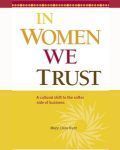
Hunt, Mary. In Women We Trust. WME Books (June 30, 2006).
In Women We Trust is written for those outside of the marketing department tasked to provide female-friendly service, yet have no easy parameters to guide them. It’s not about being politically correct; it’s about being personally correct - knowing which “trust points” women value.

